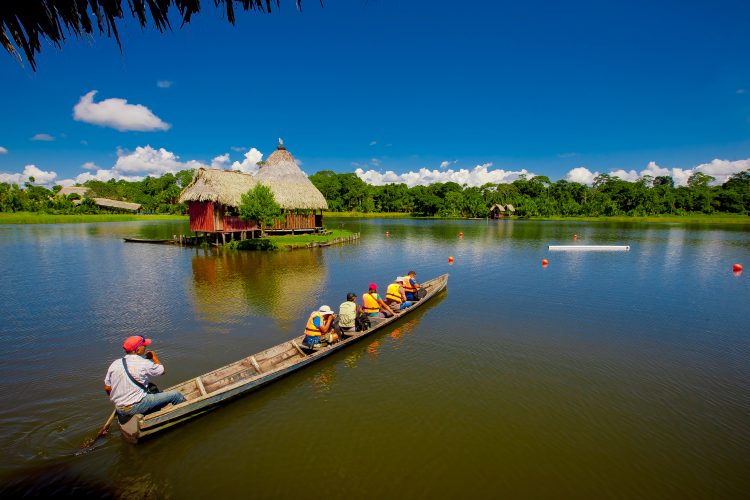Biodiversity crucial to human nutrition study finds
- Like
- Digg
- Del
- Tumblr
- VKontakte
- Buffer
- Love This
- Odnoklassniki
- Meneame
- Blogger
- Amazon
- Yahoo Mail
- Gmail
- AOL
- Newsvine
- HackerNews
- Evernote
- MySpace
- Mail.ru
- Viadeo
- Line
- Comments
- Yummly
- SMS
- Viber
- Telegram
- Subscribe
- Skype
- Facebook Messenger
- Kakao
- LiveJournal
- Yammer
- Edgar
- Fintel
- Mix
- Instapaper
- Copy Link
Posted: 4 June 2021 | New Food Magazine | 2 comments
A decline in biodiversity could have a damaging nutritional effect on populations dependent on fish according to a new study of the Peruvian Amazon.


The Loreto region of the Peruvian Amazon is dependent on fish
All fish are not created equal, at least when it comes to nutritional benefits.
This has important implications for how declining fish biodiversity can affect human nutrition, according to a computer modelling study led by Cornell and Columbia University researchers.
The study, Declining Diversity of Wild-Caught Species Puts Dietary Nutrient Supplies at Risk, published in Science Advances, focused on the Loreto region of the Peruvian Amazon, where inland fisheries provide a critical source of nutrition for the 800,000 inhabitants.
At the same time, the findings apply to fish biodiversity worldwide, as more than two billion people depend on fish as their primary source of animal-derived nutrients.
“Investing in safeguarding biodiversity can deliver both on maintaining ecosystem function and health, and on food security and fisheries sustainability,” said the study’s first author Sebastian Heilpern, a presidential postdoctoral scholar in the Department of Natural Resources and the Environment at Cornell University.
Practical steps could include establishing and enforcing “no-take zones” – areas set aside by the government where natural resources can’t be extracted – in critical habitat, making sure that fishers adhere to fish size limits, and an increased investment in gathering species data to inform fisheries management policies, especially for inland fisheries.
In Loreto, people eat about 50 kilograms of fish annually per capita, rivalling the highest fish consumption rates in the world, and about half the amount of meat an average American consumes each year. Loreto residents eat a wide variety of fish, approximately 60 species, according to catch data. Species include large predatory catfish that migrate more than 5,000 kilometres, but whose numbers are dwindling due to overfishing and hydropower dams that block their paths. At the same time, the amount of fish caught has remained relatively consistent over time. This could be due to people spending more time fishing and smaller, more sedentary species or other predators filling voids left by dwindling larger predator populations.
“You have this pattern of biodiversity change but a constancy of biomass,” Heilpern said. “We wanted to know: How does that affect nutrients that people get from the system?”
In the computer model, the researchers took all these factors into account and ran extinction scenarios, looking at which species are more likely to go extinct, and then which species are likely to replace those to compensate for a void in the ecosystem.
The model tracked seven essential animal-derived nutrients, including protein, iron, zinc, calcium and three omega-3 fatty acids, and simulated how changing fish stocks might affect nutrient levels across the population. While protein content across species is relatively equal, smaller, more sedentary fish have higher omega-3 content. Levels of micronutrients such as zinc and iron can also vary between species.
Simulations revealed risks in the system. For example, when small, sedentary species compensated for declines in large migratory species, fatty acid supplies increased, while zinc and iron supplies decreased. The region already suffers from high anaemia rates, caused by iron deficiency, that such outcomes could further exacerbate.
“As you lose biodiversity, you have these trade-offs that play out in terms of the aggregate quantity of nutrients,” Heilpern said. “As you lose species, the system also becomes more and more risky to further shocks.”
Related topics
Environment, Health & Nutrition, Research & development, Sustainability, The consumer








Very useful… Opened up few ideas for us as we have been working on both aquaculture and biodiversity.
It was very helpful to learn about Omega and the way fish serves it. Thank you for the post. This helps.